In 1707 a shaky union was set up that made Scotland a part of the United Kingdom. Scottish parliamentarians were bribed with vast sums of money and lucrative pension schemes to move their seats to Westminster, London. It was a sell out of the Scottish electorate that would later prompt its country’s best-loved poet, Robert Burns, to claim about Scottish politicians:
We’re bought and sold for English gold
Such a parcel of rogues in a nation.
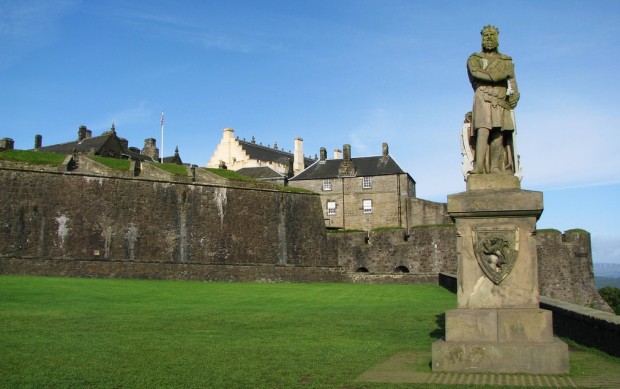
It was colonial expansionism by other means than the barrel of a gun. Empires come and go, and now there is a real chance Scotland will regain its independence. Dennis Canavan, chairman of “Yes Scotland,” is calling for a referendum on who should rule the country. On September 18, 2014, the voting electorate will decide whether they want to remain part of the union or manage their own economy. There is division now, as there was in 1707, but this time Scottish voters have a unique opportunity to express their wishes through the ballot box.
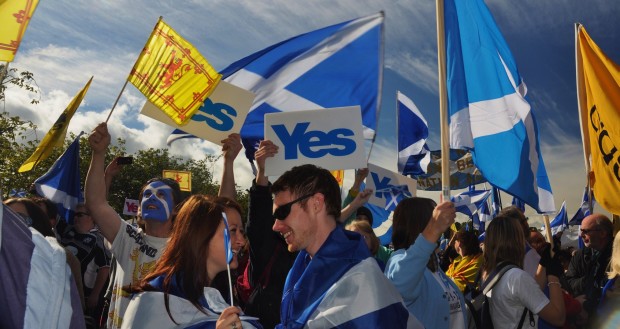
This does not mean that England has been lax regarding check book diplomacy. A lot of big money has been thrown behind a “Vote No Borders” and “Better Together” campaign. Scottish people must have sensed a strange irony when they learned that the company behind this campaign is London-based, especially since those in favor of independence know it to be Westminster that has kept Scotland a poor partner in the union. Until recently BBC reports were almost completely partial to the “No” campaign. This was coupled with a faux grass-roots promotion of its corporate line, which amply demonstrated the bigotry of the government’s main media mouthpiece and was exposed by Craig Murray. Only when it became evident that this campaign had backfired did the BBC start to present more balanced reporting.
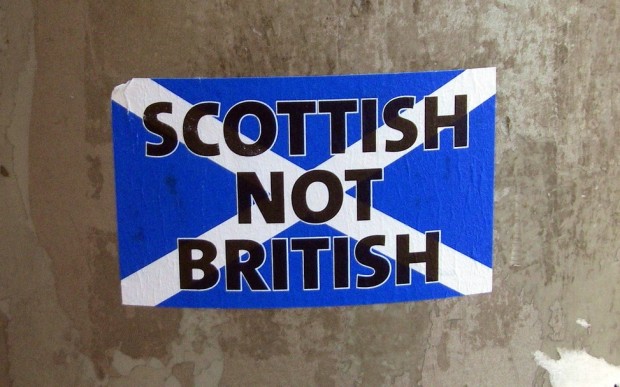
David Cameron added his voice to the “No” campaign, which gave clear and substantial kudos to the “Yes” movement. He promised to Scotland some pie in the sky for keeping the union intact, including greater ability to raise its own taxes and more devolution should voters say No, failing to note that, with a Yes vote, they would get whatever they want. A last-minute bribe, however, was hardly likely to win over a skeptical and aware public, which knows that British rule and government have had more than 300 years to make Scotland an equal partner in the union. Support for Conservatives north of the border has long been in decline, David Mundell being the only Tory Member of Parliament (MP) who currently represents a Scottish constituency in the UK.
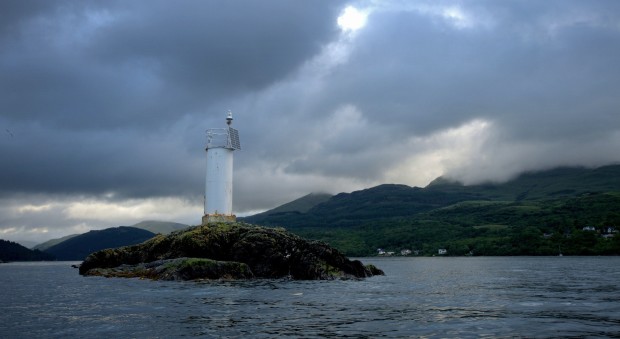
While the Liberal Democrats are a spent force, as might be expected, Labor has acted no better than the Tories, with the Scottish-born former UK prime minister Gordon Brown speaking out enthusiastically on behalf of the No campaign. Brown, the man who presided over the banking crisis bailout at taxpayers’ expense, has also written a book called My Scotland, Our Britain, promoted in an article for The Guardian. He argues with a politician’s devotion to rhetoric rather than substance while calling to his aid 18th century Scottish economical philosophers, Adam Smith and David Hume. His thesis is that these two famous men laid the groundwork for what is now called “social capital”: a wishy-washy term that means so many different things to so many different people, it is worthless as a yardstick for anything.
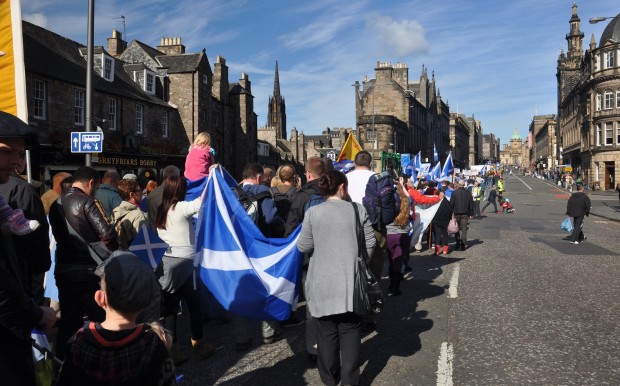
Brown singularly fails to mention the former Scottish coal miner, Keir Hardie, the most famous pioneer of the Labor movement and first Labor MP. Hardie was a pacifist who had opposed both the Boer War and the First World War. He worked on behalf of the suffragettes, and his contribution to the labor and working-class movement was enormous. The mine owners, or as Brown might like to think of them, “social capitalists,” had blacklisted young Keir Hardie and his brothers as agitators. Even more shamefully, Brown helped Tony Blair to dismantle the last vestige of socialism in the party Keir Hardie had founded, and Brown voted enthusiastically for the War in Iraq. Between them, these two prime ministers turned Labor into another neo-conservative party.
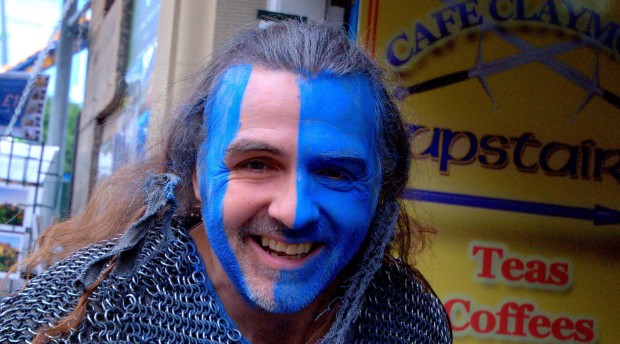
Keir Hardie was a believer in Scottish independence and abolition of the monarchy. He famously caused uproar in the House with a speech that criticized the privileges and sycophancy which were about to be bestowed on the newly-born Edward (later Edward VIII) because parliament would not approve, at the same time as congratulating the prince, a message of condolence to the families of 251 coal miners killed at Pontypridd.
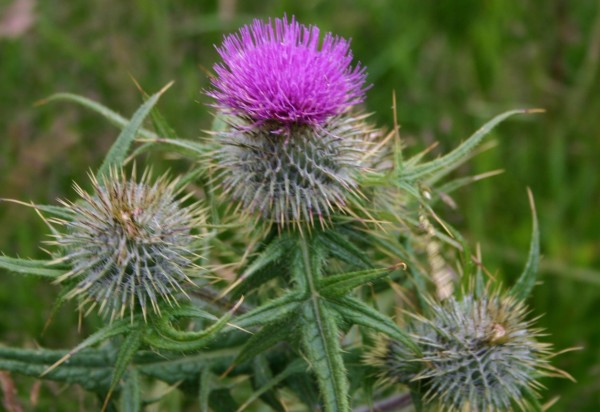
Should the Yes campaign succeed, Alex Salmond, the Leader of the Scottish National Party (SNP) and Member of the Scottish Parliament, will almost certainly head the new government. Mr. Salmond appears to be quite an establishment figure. Like David Cameron and all prime ministers since the Lockerbie bombing, Salmond has opposed a public inquiry into a tragedy for which Abdelbaset al Megrahi was blamed and imprisoned when it is widely believed today that Megrahi was in no way involved. Though Salmond will get his assured place in history with a Yes vote, he will not be head of parliament indefinitely, and one day the Scottish people might choose to elect another Kier Hardie to bring real justice to the impoverished.
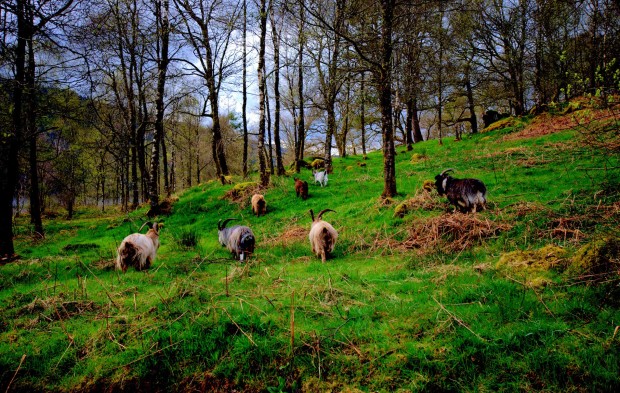
If Scotland votes Yes and goes independent, the issue of Royal Palaces will almost certainly come under scrutiny. The Royal Family has holiday homes at Balmoral Castle, Aberdeenshire and Holyrood Palace, Edinburgh. Prince Charles and the Duke of Edinburgh are quite often seen in kilts, though lederhosen might be more appropriate apparel considering the ancestry of the Royals.
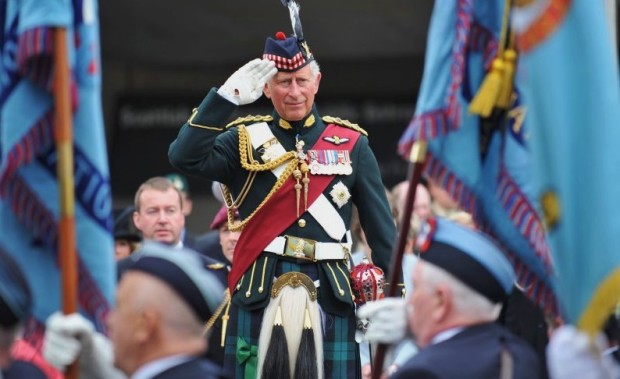 HRH Prince Charles Takes the Salute at the Armed Forces Day National Event Edinburgh
HRH Prince Charles Takes the Salute at the Armed Forces Day National Event Edinburgh
Another issue that will come to the fore with a Yes vote is Britain’s nuclear arsenal Trident, which is located at Faslane/Coulport, near to Glasgow but quite far from Westminster. It is of no real benefit to Scotland having the naval base there; in fact, this puts communities at risk in the event of enemy attack. The Thames estuary seems a much more favorable location for such dangerous weapons if our English parliament does not come to its senses with a unilateral dismantling of these gross threats to humanity.

Voting Yes to independence could also be good for England. Here in England, David Cameron is doing all he can to dismantle the National Health Service (NHS) and hive off the more lucrative parts to private enterprise, while students are leaving university with loan debts of some £30,000 and no realistic means of paying them off. By contrast, Scotland has a free (Yes, free!) university educational system. Pledges have been made to extend Scotland’s support, not only for education, but also for the NHS. If Scotland continues to set such a fine example, people in England will seriously consider moving north and those voters who remain will start asking their elected parliamentary representatives why we cannot manage our economy like the Scots.
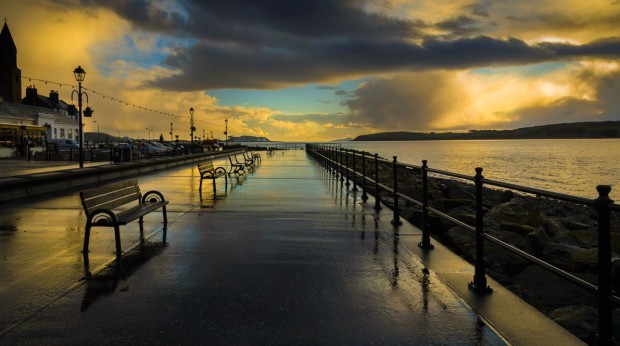
Editor’s Notes: Photographs one, three and six by Phyllis Buchanan; five, seven and nine by Nicolas Valentin; ten and eleven from UK Ministry of Defense; two by Wit Suphamungmee, four by The Justified Sinner, eight by Pedro Plassen Lopes, twelve by Robert Brown.

